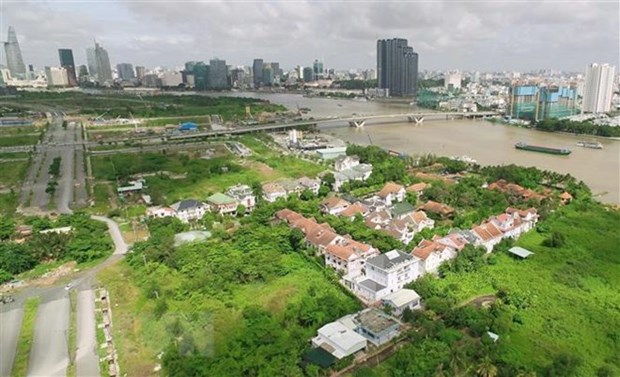China's Evergrande debt crisis provide Vietnamese policymakers and real-estate developers with many lessons to avoid another similar disaster in Viet Nam.

China's Evergrande debt crisis provides Vietnamese policymakers and real estate developers with many lessons to avoid another similar disaster in Viet Nam, said experts during a conference organised by the VnEconomy magazine to discuss the ongoing crisis.
In recent years, real estate price and rent in Viet Nam in comparison with average income has been kept on the high-side, almost as high as in China, said Dr Le Xuan Nghia, former deputy chair of the National Financial Supervisory Commission. This, in parts, reflected a shortage of supply which resulted in robust investment activities in the real estate market.
Real estate developers favour issuing bonds instead of borrowing from banks. Bank loans come with requirements for collateral and strict restrictions on their intended use. Businesses in Viet Nam have been employing this model for years, which was also what Evergrande employed.
This allows developers to keep adding new projects without finishing their ongoing projects. It may work for them when sales stay strong but as soon as the market hits a bump and sales plummet financial disaster is ensured.
"This is something that is very common for real estate developers, including Vietnamese developers. We have raised warnings over this several times," he said.
Nghia said it is unlikely for Evergrande to have a significant impact on the global financial market as Chinese real estate is not considered attractive by EU and US investors. Evergrande's foreign investment portfolio of just over US$110 million is lower than that of Vingroup.
However, the Evergrande crisis should serve as a wake-up call for Vietnamese developers. There has been trillions of Vietnamese dong worth in bonds issued by developers in Viet Nam. This is especially concerning as the country still lacks an independent and capable body to oversee its market.
Transparency is another weak spot of Viet Nam's financial market. Nghia said there might be Vietnamese developers out there with financial standing worse than Evergrande who are trying to play catch-up. Once things get out of control, it will cause major damage to the banking sector, especially commercial banks, Nghia said.
Dr Vo Dinh Tri said Vietnamese policymakers should study the Evergrande crisis to come up with better instruments for the real estate market and managing macroeconomic policies. As of now, the real estate price has reached highs that are outside of the average workers' ability to buy.
There must be measures in place to stop hoarding and speculation such as extraordinary high taxes for properties that were bought and sold within an unusually short time frame.
Experts said there is real cause for concern in Viet Nam's real estate market, especially in regards to bonds issued by developers. In the absence of an independent and capable financial market overseer, investors' interests will continue to be undermined. — VNS





